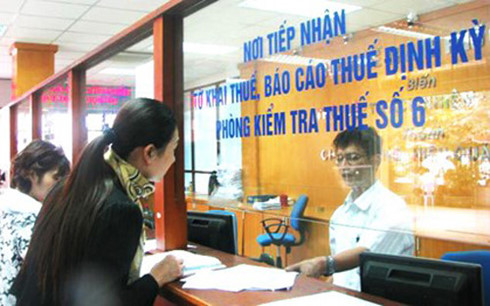
Significant changes in the newly-released draft decree on transfer pricing and tax erosion avoidance is grabbing companies' attention on the matter of compliance.
Significant changes in the newly-released draft decree on transfer pricing and tax erosion avoidance is grabbing companies’ attention on the matter of compliance.
According to Thomas McClelland, chairman of Eurocham’s Taxation and Pricing Transfer Committee, the draft circular in its current form introduces some significant changes for companies in Vietnam with related party transactions. In particular, the changes reflect development internationally.
 |
“Some of these changes are intended to be stricter on companies, and reflect the position in some other countries-for example, making it clear that the due date for preparing the transfer pricing (TP) report is before the filing of the corporate income tax (CIT) return, and that the time for submitting the report is reduced to 15 days in case of audit-extendable by another 15 days,” McClelland said.
Also, there are some measures more favorable to taxpayers that appear to be more realistic-for instance, to determine whether parties are related directly or indirectly.
The shareholding level of participants has been increased to 25% from 20%. For deemed related parties based on level of transactions-the sales and purchases from one single party threshold increase from 50% to 60%.
“In summary, the proposed changes are significant and will take time and resources for companies to understand the impact and implementation of,” McClelland said.
Cao Anh Tuan, deputy head of the General Department of Taxation (GDT) under the Ministry of Finance (MoF), said that only 1% of businesses currently operating in Vietnam conduct “related parties transaction,” and would be subject to the regulation. He said the draft is being translated into English for foreign investors to easily understand.
However, impact on the foreign-invested firms is expected to be substantial. In last week’s meeting with the Republic of Korea (RoK)’s enterprises in Vietnam, Deputy Minister of Finance Do Hoang Anh Tuan estimated that about 6% of the RoK’s firms would be under the decree’s governed scope.
Under prevailing laws on promulgation of legislative documents, affected entities have at least 60 days to comment on the draft decree. Meanwhile, MoF is requested to submit the annotated draft to the government in November of this year-the deadline was extended from early June due to the ministry’s failure to do so on time.
Fred Burke, a board member and Legal Committee chairman of AmCham Vietnam, said that “Regulations on transfer pricing are an important issue for investors-clarity and predictability are key concerns when making a decision to invest in Vietnam.”
Burke noted that the inconsistency between customs valuation for imported raw materials or components and CIT issues needs to be sorted out.
“This is to avoid a situation where the taxpayer will suffer excess tax and customs duties by virtue of an adverse transfer pricing assessment that is not consistent with its customs duty valuations,” Burke said.
In Vietnam, the first proper transfer pricing regulations were introduced at the end of 2005 and came into effect in 2006.
Circular 66/2010/TT-BTC came into force on June 6, 2010, and is considered the most comprehensive regulation in the field.
It adopts an arm’s-length principle and the transfer pricing methods set out in the Organization for Economic Cooperation and Development (OECD) Guidelines.
In October 2015, GDT established five transfer pricing inspection departments, located in the major cities for foreign investment, including Hanoi, Ho Chi Minh City, Binh Duong, and Dong Nai.
A number of foreign multinational companies, including Coca Cola, PepsiCo, Adidas, Metro, and BigC are said to be subject to transfer pricing assessments by local tax authorities.





